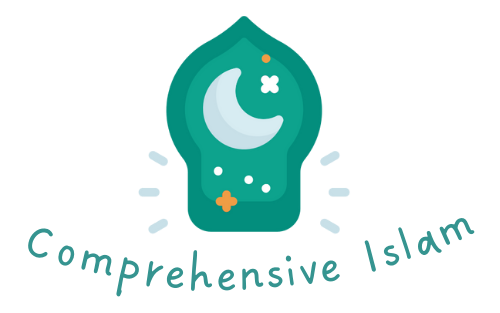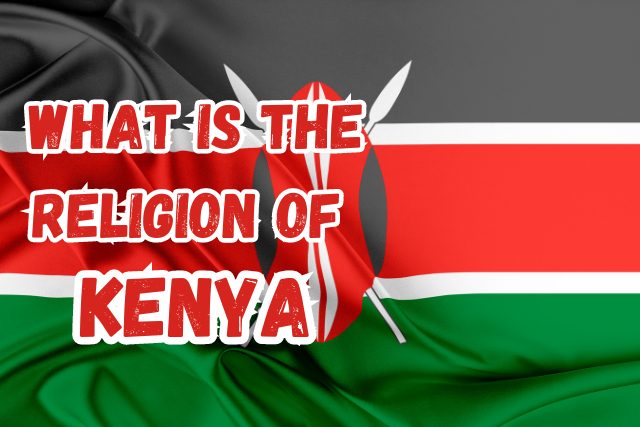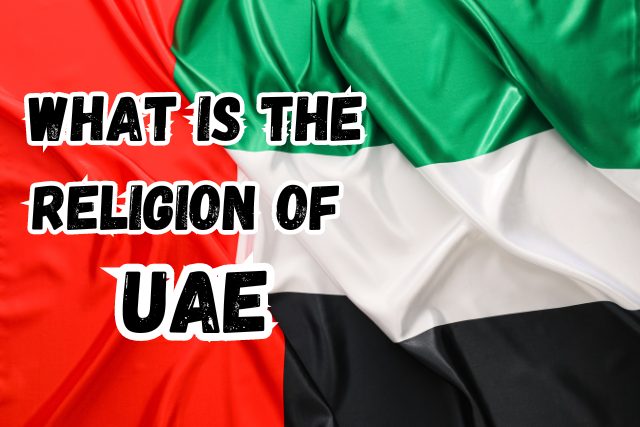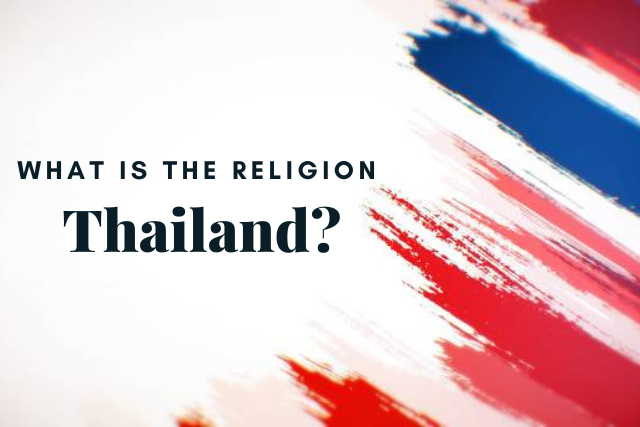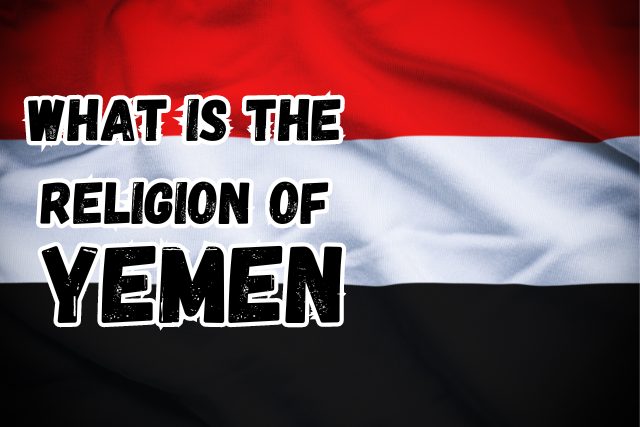What is the Religion of Nigeria In 2024? A Comprehensive Overview
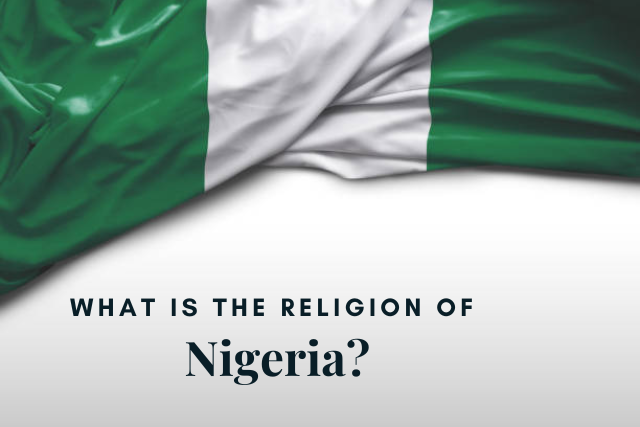
Nigeria is a huge African country with many people, around 200 million! It’s not only big in population but also in people’s various beliefs. Religion isn’t just something people believe in Nigeria; it’s a big part of who they are, how they live, and what they believe is right and wrong.
Let’s take a closer look at Nigeria’s mix of religions, how people from different beliefs get along, and how religion shapes the way people live in the country.
What is the Religion of Nigeria?
In Nigeria, people follow different religions. Islam and Christianity are the main ones. Around 52% of Nigerians are Muslim. They are mostly in the north-west and north-east. Christianity is more common in the south, like the south-west, south-east, and south-south.
Some people in Nigeria follow traditional religions or don’t have a religion.
The Nigerian constitution says people can practice any religion they want. Most Nigerians are tolerant of other religions. But sometimes, there are disagreements between Muslims and Christians.
Islam in Nigeria
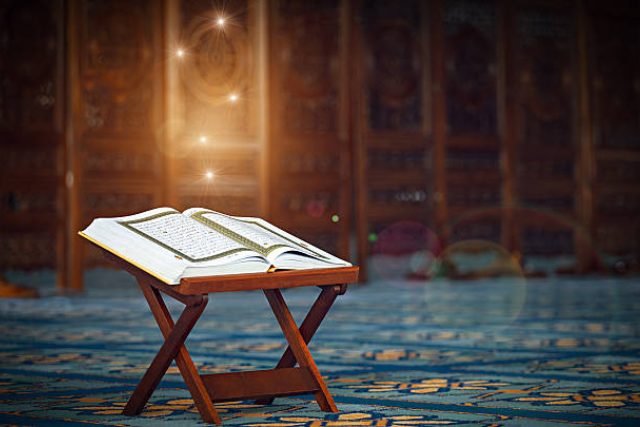
Islam arrived in Nigeria centuries ago, primarily through trans-Saharan trade routes and later through the influence of Islamic empires such as the Sokoto Caliphate. Today, the northern regions of Nigeria stand as bastions of Islamic faith, where mosques dot the landscape and the call to prayer echoes through bustling cities and tranquil villages alike. From the ancient city of Kano to the historic streets of Katsina, Islamic architecture and culture permeate every aspect of life.
In the predominantly Muslim north, adherence to Islamic principles shapes not only religious practices but also social customs and legal systems. Sharia law, with its roots in Islamic jurisprudence, governs aspects of personal and family law in some northern states, highlighting the intertwining of religion and governance. However, it’s essential to note that interpretations of Sharia law can vary widely, leading to debates and discussions within Muslim communities regarding its implementation and relevance in contemporary society.
Christianity in Nigeria
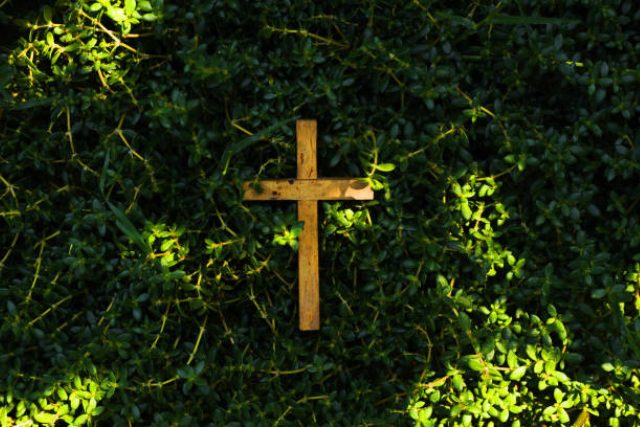
Christianity took root in Nigeria during the colonial era, as European missionaries spread the gospel across the land. Today, the southern regions of Nigeria boast vibrant Christian communities, ranging from Roman Catholicism to charismatic Pentecostalism. In cities like Lagos, the Christian presence is palpable, with towering churches and lively congregations bearing witness to the faith’s enduring appeal.
Unlike the more conservative Islamic north, Christianity in the south has undergone dynamic transformations, giving rise to diverse expressions of worship and belief. The influence of Christianity extends beyond the spiritual realm, permeating aspects of education, healthcare, and social activism. Christian missions and charities play a vital role in providing essential services to communities, particularly in rural areas where government resources may be scarce.
Indigenous Religions
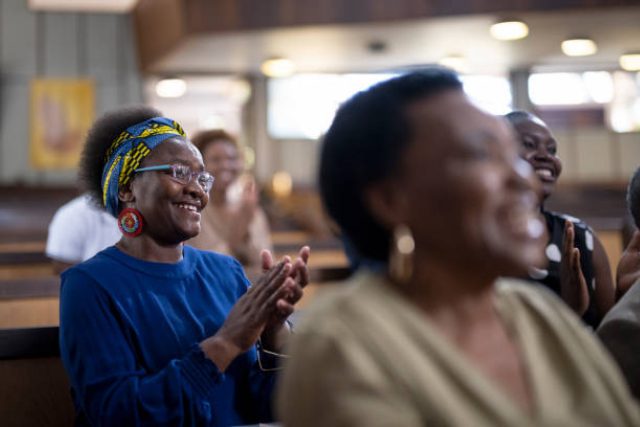
While Islam and Christianity are the most prominent faiths, it’s important to acknowledge the presence of indigenous religions in Nigeria. These belief systems, often referred to as Traditional African Religions (TARs), predate the arrival of Islam and Christianity and hold significance for a portion of the population.
TARs vary greatly across ethnicities but often share core themes like reverence for ancestors, a belief in a supreme being, and the importance of appeasing spirits. Some Nigerians practice these traditional faiths alongside Islam or Christianity, creating a blend of beliefs
Geographical Distribution: Mapping Nigeria’s Religious Mosaic
To understand Nigeria’s religious diversity, we need to look closely at how religion is spread across the country. Nigeria is a big place, and different regions have different religious beliefs.
In the north, places like Kano, Sokoto, and Kaduna are mostly Muslim. You can see this in the tall towers called minarets and busy markets that show the importance of Islam in daily life. But even in these areas, you can find Christian communities living alongside their Muslim neighbors. This shows that people of different faiths can coexist peacefully.
In the south, cities like Lagos, Enugu, and Rivers are mostly Christian. You’ll find big, fancy churches and lots of people practicing Christianity. But even here, you’ll find Muslims living and working among the Christian majority. This mix of religions adds to the colorful picture of Nigeria’s society.
Then there’s the Middle Belt, a region in the middle of Nigeria. Here, both Muslims and Christians live together, sometimes in the same communities. This creates a unique blend of religious beliefs, where people might borrow ideas from both Islam and Christianity to form their own practices.
So, while it’s true that certain religions are more common in certain parts of Nigeria, the reality is more complex. Nigeria is a patchwork of different beliefs, where people of different religions often live side by side, shaping a diverse and rich religious landscape.
The Impact of Religion on Nigerian Society
Religion isn’t just something people do on special days; it’s part of their everyday lives. It’s like having a set of rules and traditions that guide you through each day.
For Muslims, it means praying five times a day, fasting during Ramadan, and giving to those in need. For Christians, it means going to church on Sundays, being kind to others, and helping those less fortunate.
Religious teachings also influence things like how families are structured, how people behave towards each other, and even what they eat. It’s like having a compass that helps you find your way in a big, confusing world.
FAQs About What is the Religion of Nigeria
What is the main religion of Nigeria?
Nigeria is a unique case where there isn’t one main religion. It’s almost evenly divided between Islam and Christianity, with each faith holding roughly 50% of the population. This makes Nigeria a land of incredible religious diversity.
Is Nigeria a Muslim or Christian country?
Neither entirely! The north has a higher concentration of Muslims, while the south leans more towards Christianity. However, there are significant populations of both faiths throughout the country. Cities like Lagos showcase this beautifully, with mosques and churches standing side-by-side.
Are there any other religions practiced in Nigeria?
Yes! Traditional African religions, also known as indigenous beliefs, are still practiced by a portion of the population, especially in rural areas. These religions focus on ancestor veneration, the spirit world, and various deities. Sometimes, these traditional beliefs even blend with elements of Islam or Christianity.
Do Nigeria and Saudi Arabia have the same religion?
No, Nigeria and Saudi Arabia do not share the same predominant religion.
Islam and Christianity are nearly evenly spread in Nigeria, resulting in a diverse religious landscape. On the other hand, Saudi Arabia officially follows Islam, with approximately 93% of the population practicing Sunni Islam, while there exists a minority of Shia Muslims as well.
Summing Up
To sum up, Nigeria’s mix of religions is as varied as the country itself. It shows the influence of many years of sharing cultures, history, and politics. Islam and Christianity are the main religions, but traditional beliefs are still important, adding to Nigeria’s rich culture. As Nigeria faces modern challenges, it’s important to encourage talking between different religions. This will help build a society where everyone can live together peacefully, despite their different beliefs. It’s about celebrating what makes us similar, even when our religions are different.
